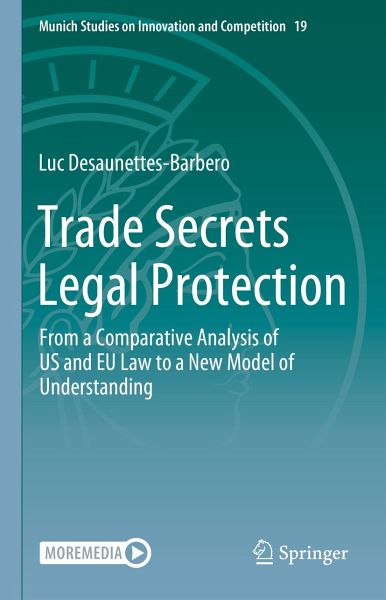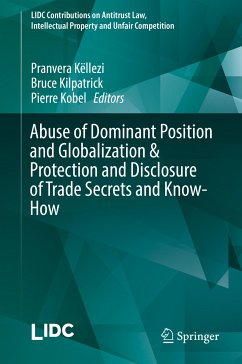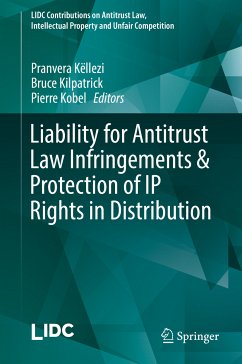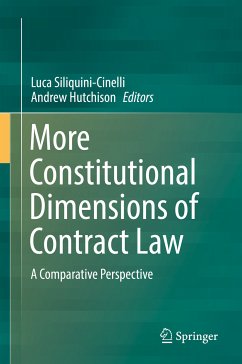
Trade Secrets Legal Protection (eBook, PDF)
From a Comparative Analysis of US and EU Law to a New Model of Understanding
Versandkostenfrei!
Sofort per Download lieferbar
128,95 €
inkl. MwSt.
Weitere Ausgaben:

PAYBACK Punkte
64 °P sammeln!
Despite the economic relevance of trade secrets, their legal protection is not based on a robust theoretical corpus, and a large uncertainty remains regarding how they should be legally apprehended. The present book investigates the foundations of their legal protection by assessing its justifications and aims to define how this legal apprehension should be organized. The book starts with a comparative analysis of the US and the EU legal frameworks. It demonstrates the parentship existing between the two systems of protection and highlights that the incremental structuring of trade secrets pro...
Despite the economic relevance of trade secrets, their legal protection is not based on a robust theoretical corpus, and a large uncertainty remains regarding how they should be legally apprehended. The present book investigates the foundations of their legal protection by assessing its justifications and aims to define how this legal apprehension should be organized.
The book starts with a comparative analysis of the US and the EU legal frameworks. It demonstrates the parentship existing between the two systems of protection and highlights that the incremental structuring of trade secrets protection has led to legal systems lacking broad-based conceptual foundations. In both legal orders, trade secrets rely on blurred protection, formally anchored in unfair competition, the strength of which, however, comes closer to that offered by intellectual property law. In this convoluted architecture, the judiciary is required to play a decisive role,especially at the enforcement stage. However, the absence of clarity concerning the telos of trade secrets protection leads to legal uncertainty, potentially incoherent enforcement, and, all in all, to inefficient outcomes from a welfare perspective.
The book then explores a theoretical framework based on a distinction between two legal objects: the undertakings' secret sphere and secret pieces of information. Securing the undertakings' secret sphere appears as a condition for the competition process to happen in an economy working under structural uncertainty. It requires objective regulations enforced by public authorities. On the other hand, the legal apprehension of secret pieces of information should be considered as falling within the realm of immaterial goods regulation aiming to solve the deficit of marketability of this type of good. This might call - after conducting a careful policy trade-off - for the establishment of relative (i.e. inter partes) subjective rights.
Dieser Download kann aus rechtlichen Gründen nur mit Rechnungsadresse in A, B, BG, CY, CZ, D, DK, EW, E, FIN, F, GR, HR, H, IRL, I, LT, L, LR, M, NL, PL, P, R, S, SLO, SK ausgeliefert werden.
Alle Preise in Euro und inkl. der gesetzl. MwSt. | Innerhalb Deutschlands liefern wir preisgebundene Bücher versandkostenfrei. Weitere Informationen: bitte hier klicken
Support
Bitte wähle dein Anliegen aus:
Rechnungen
Bestellstatus
Retourenschein
Storno












